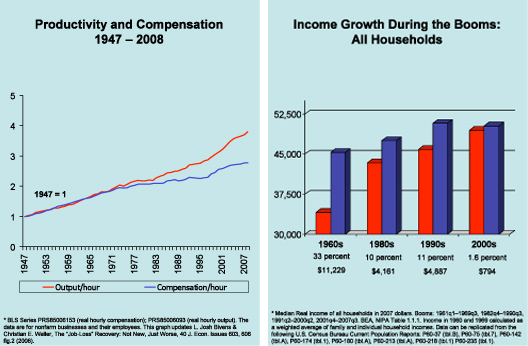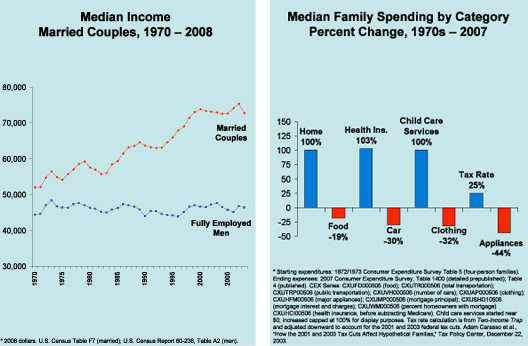July 7, 2011
Beyond The Big City Blues
Walter Russell Mead
In my last post, I argued that we need to stop thinking about our inner city problems so heavily in terms of race. Racial problems in the US contributed to the particular history of the urban underclass and race can never be totally ignored in this country, but the inner city today is haunted by three serious problems, none of which is racial in nature: a lack of jobs, an advanced state of social disintegration and decay, and the presence of the illegal drug industry.
There are no silver bullets for any of these problems; they were built up over many decades and progress at dismantling them will likely be measured on the same timescale. There are also no hundred percent solutions to these problems; when Jesus said that the poor will always be with us, he knew what he was talking about.
Government is inevitably going to be part of the solution for these problems — if only by correcting so many of the misguided policies that in many cases make existing conditions worse. Drug policy and prison reform are inevitable parts of addressing inner city problems; the government’s role as the provider of medical services to the poor, and especially to poor children, should not go away.
But even as we work on getting the government side of the equation right we need to realize that many of the most pressing problems of the inner city cannot be solved by the government. We can find ways to decriminalize drugs and to reform the legal system so that fewer young people are incarcerated for long periods for non-violent offenses — but government cannot mend broken homes or put addicts in touch with a higher power able not only to ease their craving for drugs but to help them rebuild their lives. Government cannot take a nine year-old child who has never seen a healthy family and give the child the kind of psychological balance and strength children get from growing up in a loving and stable home. All the social workers in the world can’t fix this stuff...
...The first and most important precondition for returning health to poor urban neighborhoods is the creation of large numbers of private sector jobs that relatively unskilled people can do. These jobs are unlikely to be in large scale manufacturing plants. The days when domestic manufacturing anchored an emerging urban working class and provided a ladder into the middle class are as dead as the days when family farms gave the majority of the American people secure livelihoods.
The idea that manufacturing will return and save us is, I fear, a snare and a delusion. The road is closed. Foreign competition is part of the story, but technology is the real driver. As factories become more automated, you can make more and fancier stuff with fewer people. Ending free trade will wreck our economy and the world economy, put the world on the road to World War Three and give a boost to the robotics industry, but it won’t bring back the days of high wage unionized manufacturing labor in the United States.
Generally speaking, manufacturing employment is going to shrink in the US over the medium to long term and large factories for big employers will be shedding workers as they update their technology rather than hiring. GM and GE will not propel the next generation of Americans into the middle class.
So where will the jobs come from?
Answer: if they come at all they will come from small business and many of these jobs will not be particularly attractive...
...Changing the way cities work matters a lot. If we want new businesses and new jobs in our inner cities, we are going to have to declare war on the cost structures of cities like New York and Chicago. The tax load must come down drastically, implying both a reduction in government activities and a revolution in the way services are provided. The forest of regulations that makes everything from opening a new business to repairing a building complex and expensive must be dramatically thinned. If we are serious about creating conditions in which workers with poor skills can make a living inside great cities, we have to move away from regulations and practices which make it prohibitively expensive to do business there...
...The bien-pensant gentry politics that dominates political discussion in respectable circles has lost touch with the realities of American life and no longer really comprehends the issues at stake. To some degree this impoverished policy conversation reflects the declining financial and intellectual firepower of the private sector labor movement — itself a consequence of the automation driven transformation of American and world manufacturing. The “clean” wing of progressive politics has almost entirely driven the “smokestack” wing out of business, so that liberal policy discussions tend to revolve around quality of life issues primarily of interest to the upper middle class.
Adding to this problem is the capture of Democratic party power by the producers of government services as opposed to the (intended) beneficiaries. From New England to California we are witnessing a series of bitter battles that pit the interests of public sector employees against the interests of those who depend on the services government provides: teachers’ unions versus schoolchildren, healthcare providers versus patients and so on. Because public sector workers are among the best organized and most voluble constituency groups and poor people are among the least organized, the balance of benefit in many government activities has shifted over time to the deliverers.
“Progressive” policy now increasingly means policy that benefits genteel upper middle class liberals and public sector government workers; the resulting mix of complex and poorly applied regulations, high costs and high taxes throttles the only kind of job creation that could offer most inner city residents a feasible step up.
The answer is not a return to the sweatshops of the early twentieth century or to the rampant pollution of the past. The answer is a reconfiguration of government and a new commitment to rapid economic growth in our cities. Cities once prospered because they were the places where entrepreneurs found the best opportunities. Writers like Joel Kotkin have been exploring these ideas for some time and looking at ways in which cities, suburbs and exurbs can grow faster.
Kotkin grasps the most important facts about urban development today: without rapid, small business led growth, there is no way that the residents of our inner cities can escape the cycle of poverty that has them in its grip. And progressive blue politics as conventionally understood systematically squeeze and crush growth in our cities. The bluer a city, the bluer a state, the fewer private sector jobs it tends to create.
Until our urban leaders grasp these truths, conditions in the inner city will continue to go downhill as more and more cities start to look more and more like Detroit.
None of this will help the underclass; none of this will help the poor.



